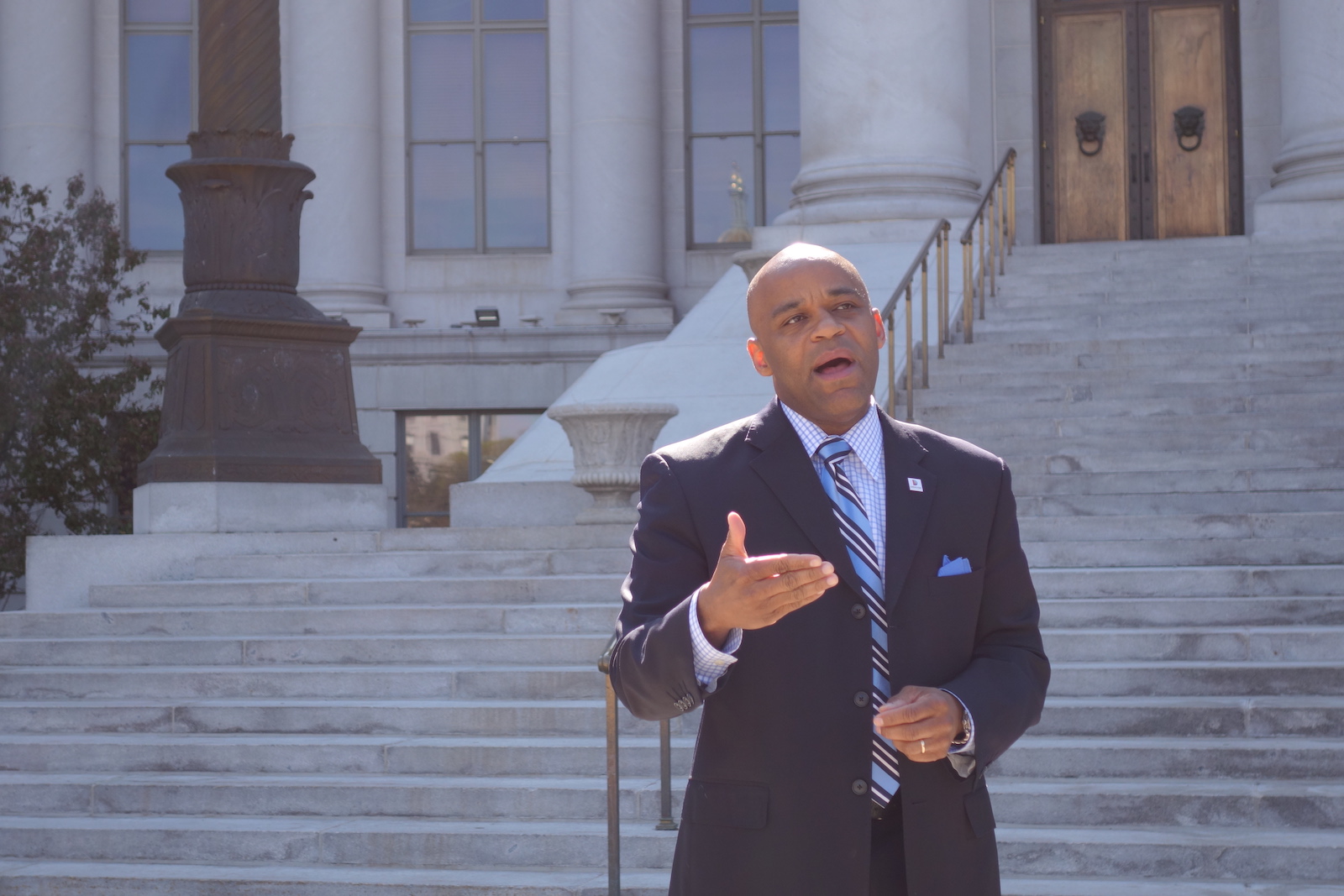The Local newsletter is your free, daily guide to life in Colorado. For locals, by locals.
It’s been less than three weeks since protests decrying the death of George Floyd began in Denver, and already the demonstrations have led to an array of law enforcement reforms across the city and state. According to local activists and politicians, there will be more.
Last week, we sat down with Denver Mayor Michael Hancock to discuss his own experiences with profiling, how that inspires his motivation for police reform, and an audacious (though mysterious) plan to confront racism across the Mile High City.

5280: I was at the protest on June 3, when you told the crowd that you’d been an advocate for racial justice for 30 years. It got me thinking about the 2015 story 5280 published about the Denver Police Department, in which you recalled being profiled while driving your 1982 Firebird through Cherry Creek.
Yeah. Great memory.
Sorry to bring it up. But is that your most visceral memory of personally experiencing racism at the hands of law enforcement?
No. I think we were talking about racial profiling at that point in time. But obviously during my life I’ve had interactions with police; I’ve witnessed interactions with police that were not that great. Just growing up as an African American male, you cannot not see those things.
Is there a specific example you can remember?
No. There are so many…. But the point I was making was that as you grow up, you begin to, at least as an African American male, your perception begins to change in terms of witnessing how police interact and treat members of your community. I certainly saw that growing up and that’s what I was referring to.
So as an African American man who happens to be the mayor of Denver, is law enforcement reform more important to you? Is it more personal to you?
I’ll tell you that since I’ve been mayor, bringing in those efforts that I believe bridge the gap between the police and the community have been very important to me. I think that comes from my experience as an African American. One, I think if you look at how we have broadened the approach to crime in our communities through efforts like the Opportunity Index or our co-responder program. Those I think speak more to who I am, utilizing a very important department, like the Denver Police Department, to really take a broader perspective on how we deal with crime before it gets started but also get to the heart of the cause of crime in our communities, whether it’s the African American community or any community. Also my first hire as police chief was Robert White. Not only was he African American, but he was also bent on reforming the police department and making the police department more accountable and more community focused. So reform didn’t start for me overnight. I recognized how important it was to be very bold in pushing for reforms. We’re one of the first cities, for example, to require body-worn cameras by police officers. Those are the kind of initiatives that reflect more of who I am and my recognition that we need to have more accountability with our police officers.
On June 7, DPD announced it was banning chokeholds, requiring officers to report whenever they point their weapons at people, and mandating the DPD/Metro unit turn on body cameras during tactical operations. Were you part of that decision?
Absolutely. [DPD Police Chief Paul Pazen] and I along with [Denver Department of Public Safety Director Murphy Robinson] started looking at some of the list of demands from the movement, and we subscribe to the President’s Task Force on 21st Century Policing, which I think brought out some very strong recommendations. So we were glad to see that we were in line with almost all of the recommendations that had come forward and moved on a lot of them. There were some things we needed to do to tighten up, comprehensive reporting being one of those, closing the loop of chokeholds was the other. And we said, Let’s get it done.
Before our interview, I was reviewing the use-of-force recommendations from the 8 Can’t Wait campaign. With last week’s addition, it seems Denver has checked off all eight of the group’s endorsements. Does that mean you’re done?
Absolutely not. I think you’re going to hear us make some announcements to further engage stakeholders in the community to have even additional conversations. We’re going to look deeper as a city at how we push forward on the questions around equity and inclusion and reconciliation; how we continue our efforts on research, development strategy, and training of not only our police officers, but our firefighters, all the boards and commissions, city employees. I think it’s easy to look at this just being policing because of the tragedies we’ve had with people of color, and rightfully so. The issue of bias and racism is systemic and spans over centuries. George Floyd and his tragic murder represents a huge opportunity for all of us to dig deeper on the question of racism and bias. I have spent a lot of time contemplating and meditating on how we make sure not only that it no longer occurs within our police department, but we begin to really deal with this virus in our own communities and within our society. It’s not something we’ve really dealt with. We always pass laws and policies, but we haven’t dug deep and really been vulnerable as a society and really talked and really confronted this disease called racism. I want to do that.
Care to share any of your meditations?
There are some things I am working on right now with a large group of people who are experts in that field. We’re frankly one of the only cities to have this type of effort that is a permanent effort, one that evolves with the culture, that is not a one-hit wonder, but is a mainstay. I can’t talk about it now, because we’re still putting the pieces together, but it will be a mainstay in terms of helping the people of Denver and the metro region—the state, really—confront this issue in very hard, thoughtful, but informed ways.








